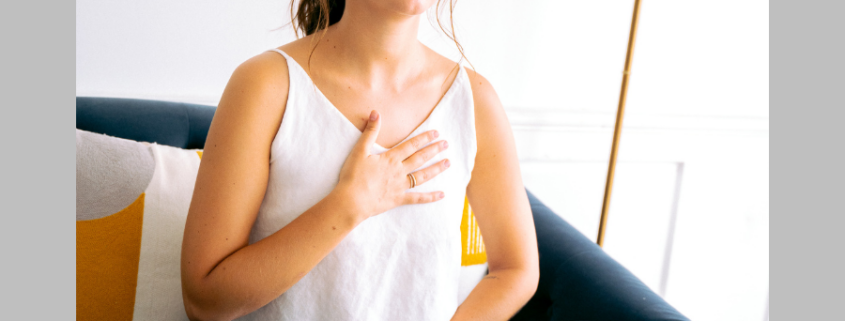The Power of Becoming Our Own Friend Through Meditation
Becoming Our Own Friend
Befriending is an important quality of mindfulness. This is different than self compassion. Self compassion is used to ease our difficulties that have already arisen. When we make a mistakes when something doesn’t go our way. When we are sufferring, we are instructed to use self compassion, to soothe ourselves. To bring ourselves back into balance after falling out of it.
In self compassion we USE inner friendliness. Treating ourselves as we would a good friend.
Befriending ourselves is an attitude or a stance that we can maintain as best we can no matter the circumstances. Habitually. Treating ourself as a good friend, and treating things that arise in a friendly way. So, when things are good and when things are not so good, we maintain a positive outlook towards ourself.
There’s a subtle difference between the two. Our usual response to petty difficulties is harsher than perhaps any of us want to admit.
What is up with my hair today. I look tired. Ugh, I hate how these pants make my butt look…

We are all conditioned to do this to ourselves, and we don’t have to. It’s been learned over time and we don’t need to do it. When we do these things, we are not using friendliness towards ourselves.
Mindfulness is an act of hospitality. It’s learning to treat ourselves with kindness and care. With practice, this can slowly begin to seep into the deepest recesses of our being. We can also encourage the possibility of relating to others in this same manner.
Befriending yourself in meditation is part of developing your own practice. We are all different, there are things that will work for some more than others. We can lean into what works for us. Choosing a supportive anchor is one way to befriend ourselves, making it easier to meditate. Some people don’t do well with the breath and are better of focusing on sensations in the hands or feet.
Just like we would invite a guest in to our home and offer them a comfortable seat, encouraging inner friendliness includes our own comfort.
If sitting cross legged doesn’t work for you, then perhaps you should lie down or sit in a chair. Doing what we need in the moment and allowing that to be different on different days. Just because you always sit doesn’t mean you can’t choose a different position if you feel like that’s what you need.
One way to offer self kindness is through metta.
We can use whatever words resonate.
Traditional:
May I be safe.
Mayb I be free from suffering,
May I be peaceful.
May I be healthy.
May I be energized.
Tara Brach likes to tell herself “It’s okay, I care.”
Putting a hand on the heart can also sometimes be enough.
Or we can resource. Envision someone who cares deeply for you. It could even be a pet or a spiritual figure – and feel their love flooding in.

It’s asking us to step in to the circle of kindness and include ourselves.
We don’t judge the meditator.
Working with whatever is present is enough. We will always find moments of self criticism that are ripe for working with. There is no need to condemn ourselves for not feeling friendly to ourselves. We all get depleted, there are times when our reserves of inner kindness feel empty. The thing is, we can often access them if we sit and get quiet. Kindness is not a finite thing. It’s not that it’s gone – it’s just temporarily inaccessible.
Our ability to ACT upon kindness might be strained. When we are stressed, tired, ill – doing things can feel hard. Making efforts to reach out to others, to take actions may be hard to find. Yet the well of good feeling FOR OURSELVES is always there if we need it.
We simply ask to entertain the possibility of offering hospitality towards ourselves no matter the circumstances. When in the more strained or difficult times this is all the more important. We bring our whole selves to the meditation cushion. Sometimes there is a mood, an annoyance, something we are processing that comes along with us. That’s all part of it – allowing what is.
One of the most important parts of meditation is maintaining a stance of friendliness to ourselves and to whatever arises. This is part of the friendliness piece that is so important. Our usual response to difficulty is to strategize how we might get away from it. What if we took our attitude of friendliness and turned that on our difficulties? When we are struggling with our feelings, it tends to make them stronger.
We all feel like if we can just control our difficulties then we might wrangle them into submission. It works in our favor to turn a friendliness towards them. When it comes to feelings, caring and acceptance is a better path. You could say the path of love is to befriend whatever it is that we find difficult.
This can also go for our difficult thoughts about ourselves – I always do the wrong thing in this situation, I should be other than I am. What if we turned it around and welcomed that difficulty with love and friendliness? It does seem counterintuitive. Bringing in these things we don’t like, these things we push away.
We can take a tiny step by experimenting. This process can take time. When we befriend a feeling, we can start in the body. Our feelings wish for acceptance, just like we do. If we take time to sit WITH tough feelings as they arise, we can slowly begin to befriend them. To trust them. Eventually = and this can take months – it will eventually untangle itself from us. Feelings come with stories. There is a story behind the stuckness. When we sit with difficult feelings, we can ask – what is the story you have to tell me? What do you want me to know? And see what arises. This can be a challenging practice, but it does work if you give it a chance and be patient. There are stuck parts of all of us that just want to be listened to.
Getting out of our comfort zone can be difficult and also very rewarding.
We can also befriend our thoughts. Often, we get lost in thought. Do we let the thought anger us, or do we allow the thought to be there?
This is when the aspect of inner friendliness is so important. We can be welcoming to whatever arises, not push away, not resist. Consider our act of hospitality.
Welcome all your moods and emotions as they arise, knowing that there is space for everything. It is possible to keep a stance of inner friendliness on the cushion and off.






